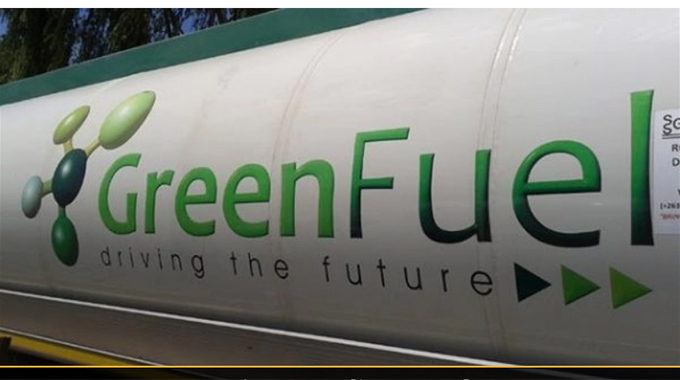Is ethanol blending making petrol expensive – for now?

Jeffrey Gogo Climate Story
Respected climate change researcher Elisha Moyo last week posted a particularly interesting brief analysis on the economics/politics of ethanol blending in Zimbabwe. For context, he went back into history, seven years back, when the country started to mandatorily blend ethanol with petrol.
“Upon completion of the project, between 2,5 million and 2,8 million litres of ethanol will be produced daily,” Moyo recounted a Wikipedia entry, verbatim, a statement possibly by Government officials while launching Green Fuel’s ethanol plant nearly a decade ago.
“The production of such volumes of ethanol would be expected to end the country’s importation of petrol as consumers convert to the use of the cheaper fuel. Excess ethanol-petrol export could be an important source for foreign currency,” the entry continued.
Moyo is deeply frustrated by the unsavoury turn of events ever since. He reacted on his Facebook page: “This is what I and many Zimbabweans were told during the introduction of mandatory ethanol blending. The trend shows that consumers pay more per litre as the ratio of ethanol per litre increase.”
Since 2013, the country has mandatorily blended ethanol with petrol at rates of between five and 85 percent, thanks to the 100 million-litre ethanol distillery plant at Chisumbanje in south eastern Zimbabwe.
However, seven years down the line, Zimbabwe is importing more petrol and diesel than it did when the above statement was made — billion-dollar worth of fuel each year.
While some reports have alleged monthly savings of US$2 million during the early years of blending, the actual numbers may not be known.
Even more intriguing is that ethanol blending has not resulted in a decline in the price of petrol, as promised — except may be for a few months around 2014 when 85 percent ethanol was blended with 15 percent unleaded petrol or E85.
As a matter of fact, ethanol is making petrol more expensive. According to a breakdown of fuel build up costs released by energy regulator Zera last week, ethanol accounts for up to 16 percent of cost per each litre of E20 blended petrol, whose price has just rocketed to ZW$71,62 per litre.
This is one of the reasons why at ZW$62,77 per litre, diesel is much cheaper than petrol — it is not blended with ethanol.
The cost that Government is paying for a litre of ethanol at ZW$54,57 is just a hair away from what it cost to land a litre of petrol from outside the country to the national fuel storage facility at Msasa.
It is a ridiculous expense for both Government and motorists, particularly for a locally produced product that was initially billed as a cost saver.
There is already deep concern over the economic viability of biofuels, their impact on food security and whether biofuels yield the real environmental benefits they are said to bring by private companies seeking profit.
For example, how much carbon emissions have been avoided in Zimbabwe since blending ethanol with petrol became mandatory?
What role has the private sector played in tracking their own carbon emissions and or savings from offsetting initiatives?
How much data has a company like Green Fuel collected and made available on the extent of the environmental benefits accruing to Zimbabwe specifically from ethanol use as opposed to providing blanket, globalised benefit oratories?
Current dynamics appear to show that the ethanol push may have never been out economics, much less climate change. Billy Rauntenbach’s profit-driven Green Fuel seems to be the biggest, if not only, beneficiary of the ethanol project so far, never the motorist.
And for some bizarre reason, petrol pays a significantly higher carbon tax compared to diesel.
According to the breakdown Zera breakdown, carbon tax related to petrol is levied at $2,29 per litre while diesel pays $0.74 per litre.
This is incredible given that diesel has a higher emission potential for causing climate change compared to petrol. A reasonably justifiable expectation is that the carbon tax threshold for diesel would be steeper than petrol’s.
On the average, each litre of diesel produces 2,7 kg of carbon dioxide emissions equivalent, and petrol 2,3 kg, scientists say.
Needless to say that carbon tax has not been effective as an emissions-control measure in Zimbabwe for the one reason that it has not been used to deliver climate-sensitive interventions.
In its early years, the application of the tax didn’t even seem an effective tool for curbing automobile industry emissions, but more a clever design to improve Government revenues.
With motorists obliged to pay the tax only on a quarterly or annual basis during the motor vehicle licence renewal payment, the system disregarded the individual’s frequency of travel, which is the frequency of carbon emissions.
God is faithful.









Comments